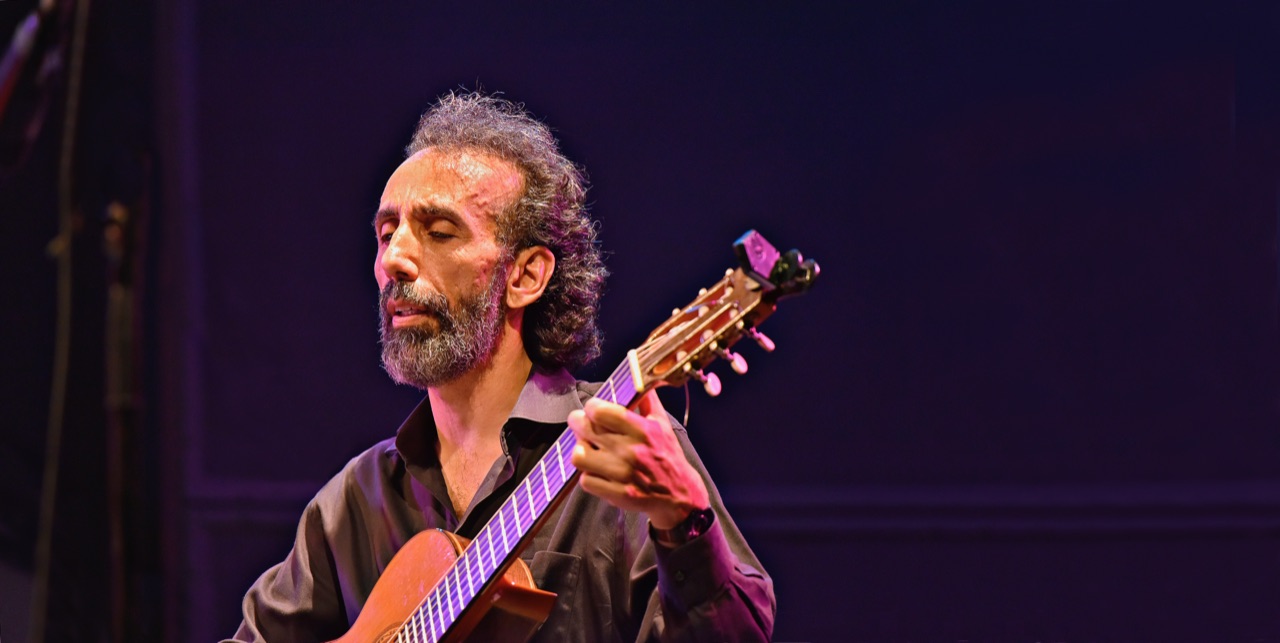Growing up, Brian Katz announced to his family that he was going to become a member of the Beatles when he first saw them on television.
Though this didn’t happen, his parents bought him a guitar and soon enough, he was figuring out melodies and chords by ear before taking formal lessons in guitar, cello, piano, and then theory and composition studies. Katz says that he is fortunate to come from a music-loving family and grew up surrounded by a variety of music such classical, broadway, pop, rock, klezmer, and jazz.
“In my teens and early 20s, I struggled as to whether I would become a full-time professional musician or a psychotherapist — another great interest since my youth,” says Katz. “Ultimately, becoming an artist and educator fit me well in that I can perform as well as help guide others.
“What binds it all together for me is embracing all these styles through composing and improvising. These are the places where I can choose sounds that feel like an honest reflection of who I am. My goal is to find a coherent, original, expression amid all of these loves.”
Katz explains that for years he felt all over the place with his style but composing and improvising helped him to find the ‘Brian Katz’ sound. “I’ve found the nylon-string guitar to be the closest expression of that sound, though I also play and perform the piano a lot. I’ve been fortunate to have traveled the world performing solo concerts and teaching, as well as performing and recording with many great musicians.
“My performances are full of spontaneity and I aim to keep myself on the edge as well as the audience! Sometimes I ask, ‘why do I do this to myself, going out on the big stage not knowing what notes I’ll be playing?’ But I have come to realize that this is such a wonderful and juicy challenge that brings great personal growth and satisfaction.”
Due to the pandemic, livestreaming has become a popular option for many artists. Katz believes that while it is here to stay, it will never compare to performing or teaching in person. Embodiment is extremely important to him and humanity, he argues.
Katz specializes in Dalcroze eurhythmics, which is a pedagogical approach to music taught through physical movement. “Movement and sound are synonymous in many respects. When you are in the physical presence of live music or a teacher, you are not just witness to a performance but also of yourself, the natural sound, and their associative movements, which is likely to engage you much more.”
While Katz explains that he believes the music industry has not changed its values regarding an imbalance between artist warfare and profit, simulcast concerts could become more established and allow more people to attend concerts regardless of their economic situation. However, the price of attending in-person concerts could rise significantly.
“I have hope with this abundant amount of streaming audio and visual music performances that more people will also experience the healing power of music. There is no doubt that our planet is in great need of healing.”
Katz has been teaching a variety of subjects in the music department for over 25 years. “I am grateful that I have been able to be who I am as an artist and educator in this program that truly allows students and faculty to develop their individual voice. I thank the music department and the university for that opportunity,” says Katz.
While he finds great joy in teaching and performing, it can be a struggle to juggle both. “I never wanted to be an absent teacher and I feel very committed to all my students. That has sometimes meant flying to Europe for a weekend, playing a few concerts, hopping on a plane and returning with very little sleep— though still pumped from the performances!
“Watching my students blossom is nothing short of thrilling for me. I always loved to share my knowledge,” adds Katz. “I began teaching people in my neighbourhood at the age of 12, and later finished two of my degrees in music education. I also learn lots from my students through our mutual regular examination of what makes the music we are studying and performing ‘tick.’ Playing music together in my studio is a joy.
“An important mentor of mine, Fred Stone, had a sign in his studio basement that read, ‘Don’t Worry: You Can’t Fall Off the Floor’. I think that covers the most challenging situations in life. I’ve shared it over the years with students and it immediately brings forth levity,” Katz concludes.


